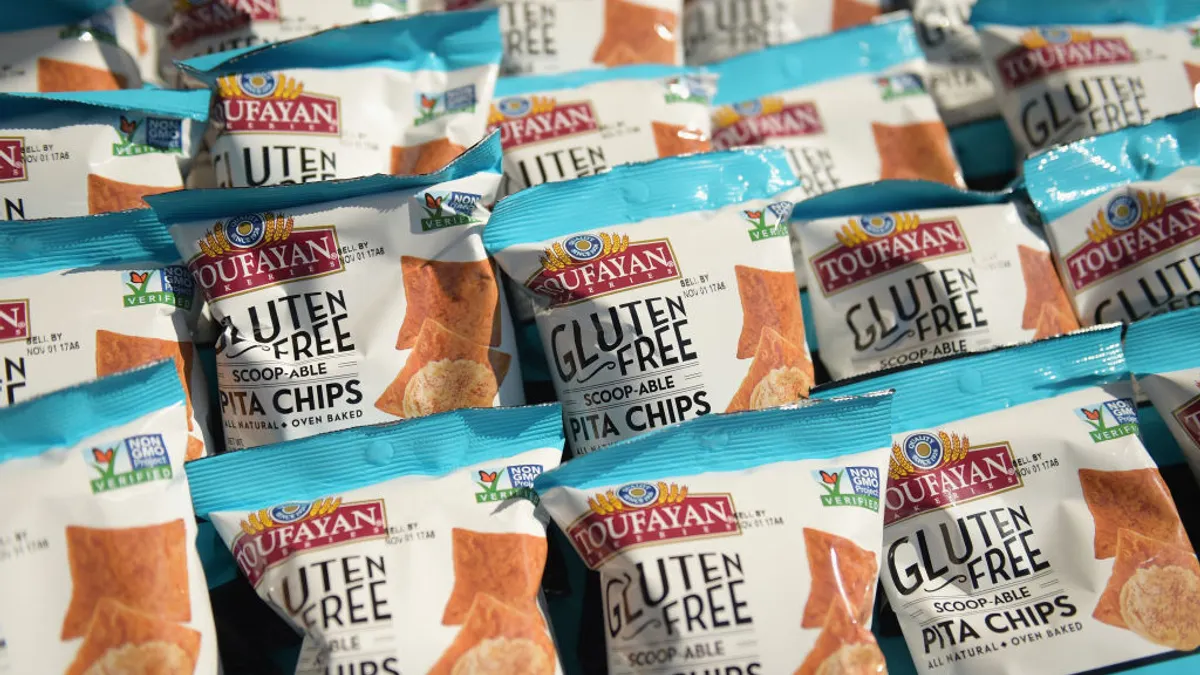Dive Brief:
- The Trump administration is exploring whether food packaging should disclose whether products contain gluten, one of a litany of policy ideas in a long-awaited "Make America Healthy Again" strategy report released on Tuesday.
- The FDA will make recommendations about requiring food packaging to state when products contain ingredients "that impact certain health conditions, such as gluten for those with Celiac disease, and other established food allergens."
- The proposal was one of the few potential regulations outlined in a White House report to improve children's health. The 20-page report largely stressed voluntary action and expanded consumer education on issues including ultraprocessed foods and artificial dyes.
Dive Insight:
Around 2 million Americans have Celiac disease, a chronic digestive and immune disorder triggered by foods that contain gluten like pasta, bread and cake. While companies can voluntarily disclose when their products are gluten-free, there is no requirement to say when the ingredient is present.
New Zealand and Australia are among the few countries that require the disclosure of gluten in food. In the U.S., companies are only required to disclose when products have one of nine major allergens.
Gluten isn’t considered a major allergen, though wheat – which contains gluten — is. While the Trump administration's proposal is light on details, it could require companies to undertake costly packaging redesigns to comply and open the door to further disclosure requirements for other ingredients. The document did not specify which “established food allergens” could also be targeted for labeling requirements beyond gluten.
For the most part, MAHA’s policy roadmap stresses the need for research and private sector collaboration over regulation. However, the administration teased the possibility of putting certain rules in place, including the gluten disclosure requirement and limits on marketing unhealthy foods to children.
The report contains 128 strategies on a variety of topics, largely outlining previously announced goals of the FDA. The agency, for example, is working on a definition for ultraprocessed foods and eliminating the GRAS ingredient approval process.
Peter Lurie, president of the Center for Science in the Public Interest, said in a statement the report “will bring a collective sigh of relief in food industry boardrooms, since it leans heavily in the direction of government deregulation, voluntary corporate action, and research likely to be decimated under the President’s proposed budget.”














